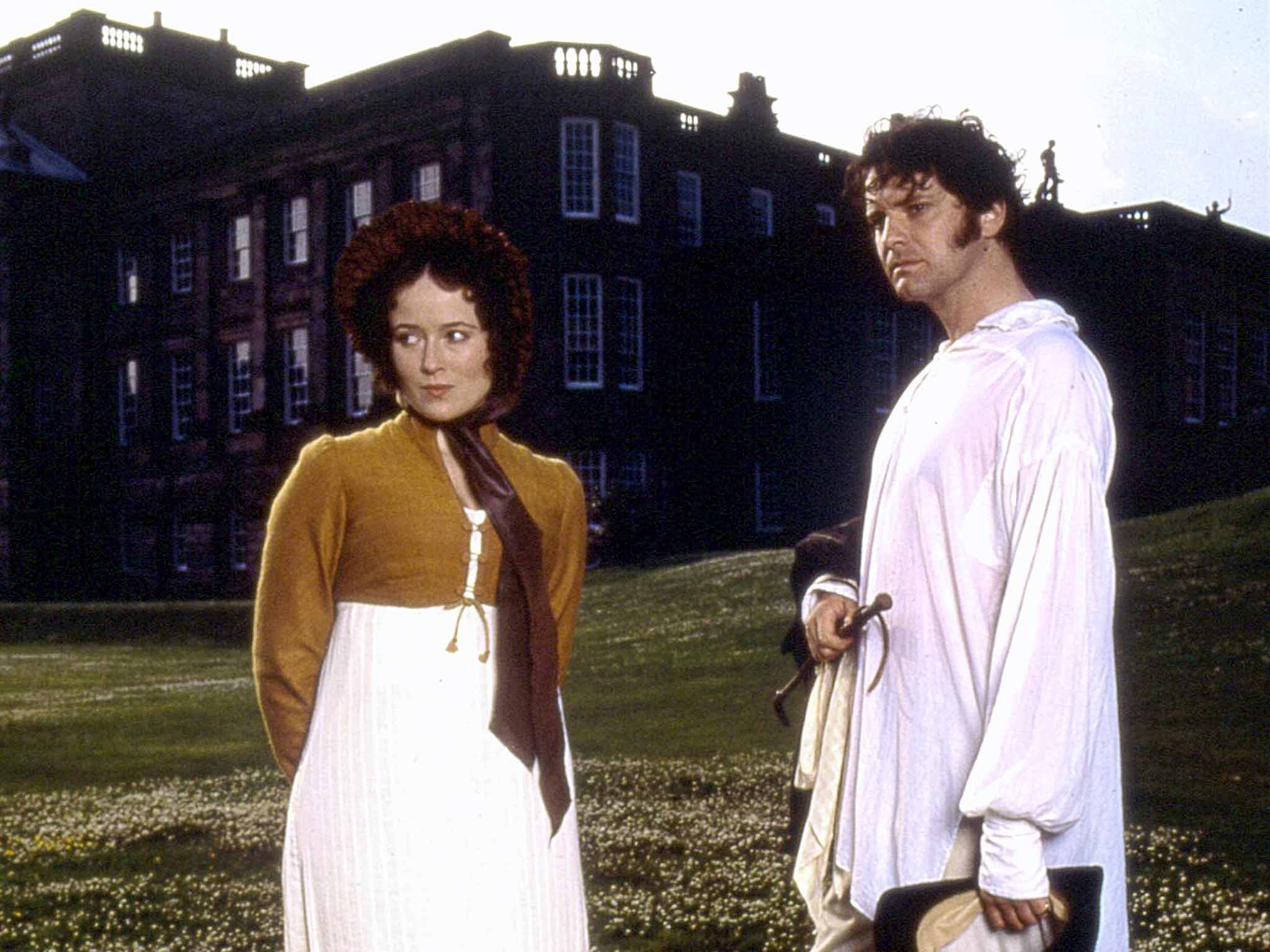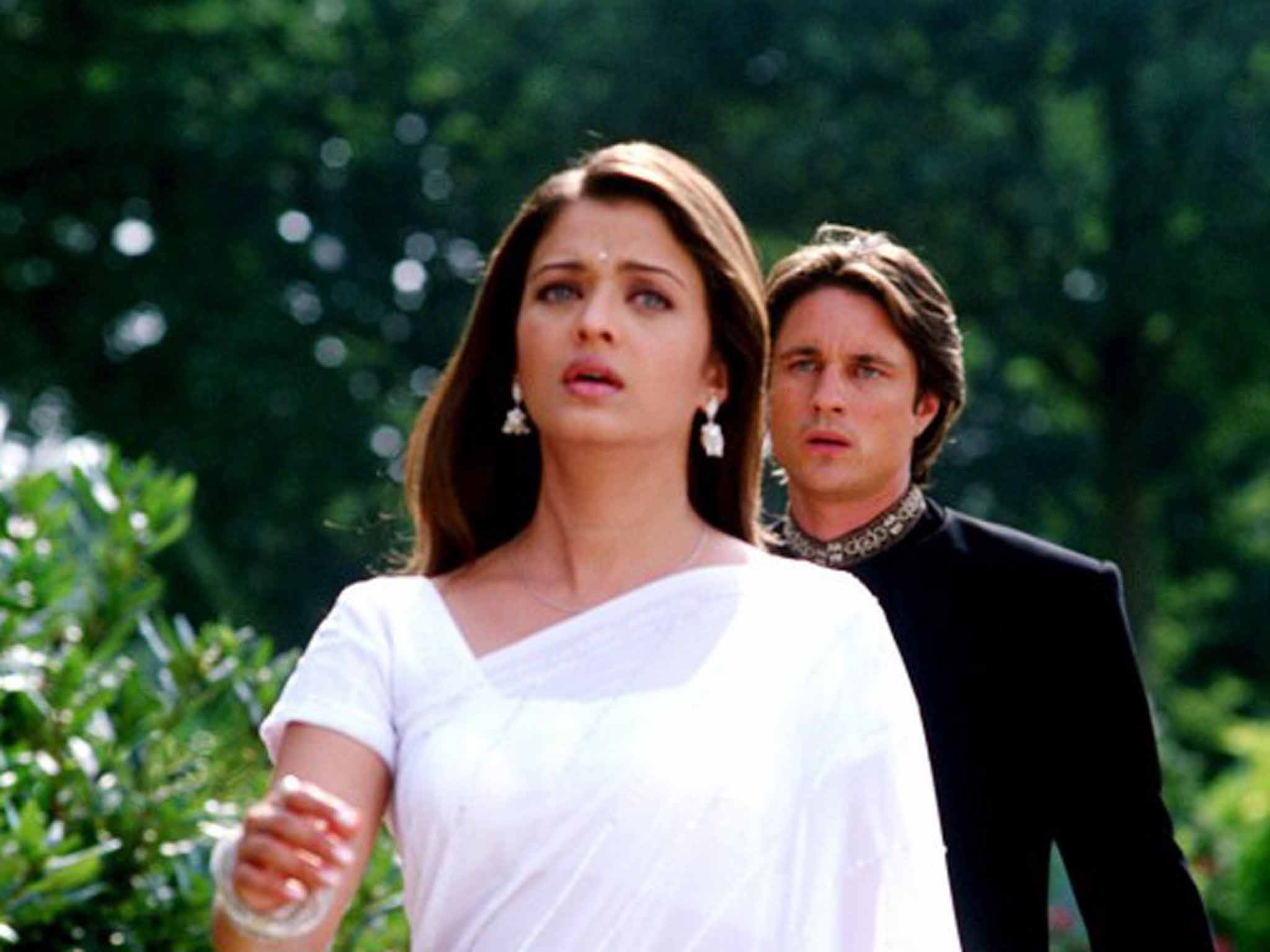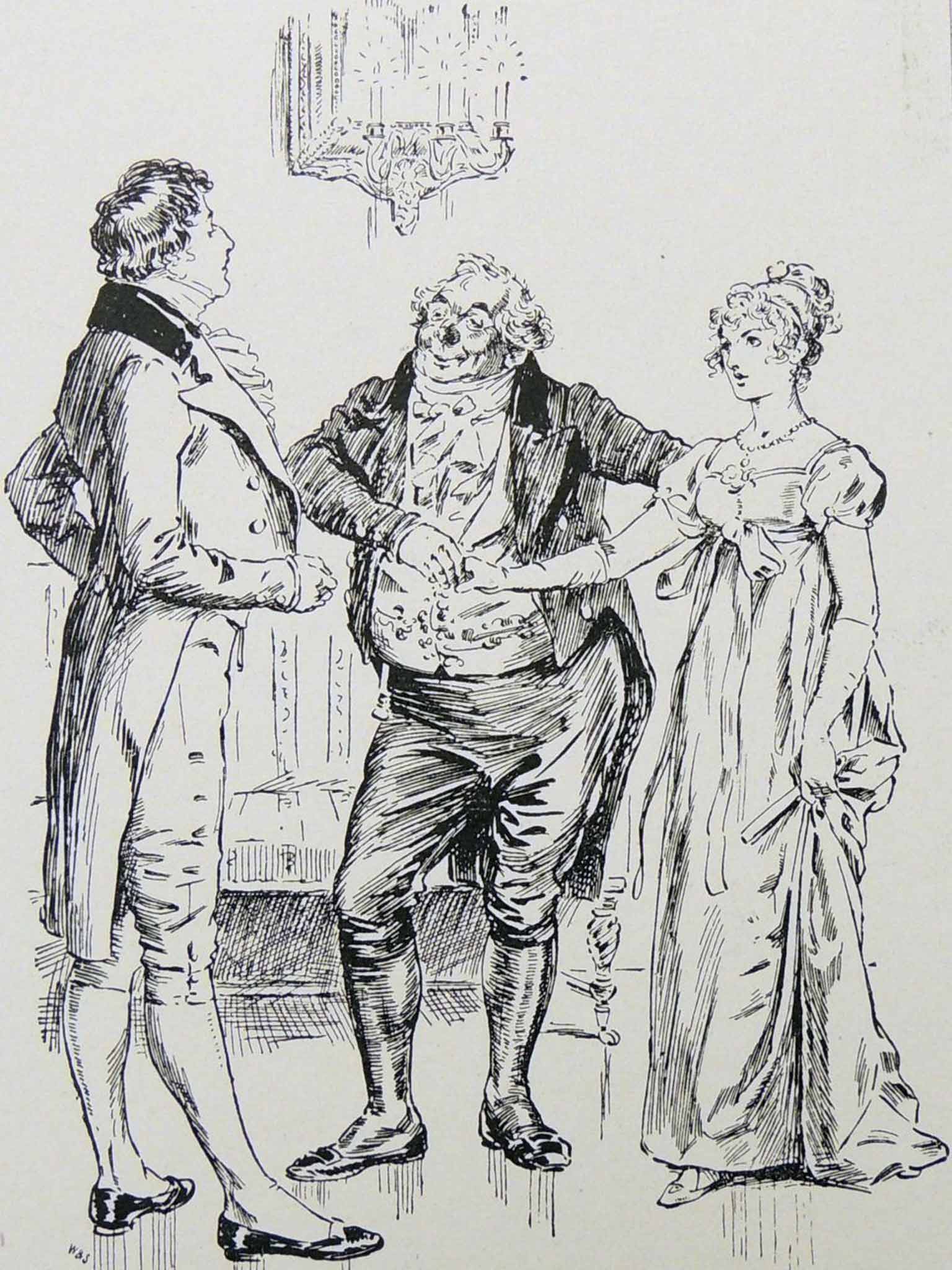Mr Darcy through the ages: In early portrayals of Jane Austen's hero, he wasn't always quite so hot...
It's 20 years since Colin Firth emerged wet-shirted from a lake in the BBC's 'Pride and Prejudice'. Now we struggle to imagine a Darcy who isn't all sexy broodiness.

Your support helps us to tell the story
From reproductive rights to climate change to Big Tech, The Independent is on the ground when the story is developing. Whether it's investigating the financials of Elon Musk's pro-Trump PAC or producing our latest documentary, 'The A Word', which shines a light on the American women fighting for reproductive rights, we know how important it is to parse out the facts from the messaging.
At such a critical moment in US history, we need reporters on the ground. Your donation allows us to keep sending journalists to speak to both sides of the story.
The Independent is trusted by Americans across the entire political spectrum. And unlike many other quality news outlets, we choose not to lock Americans out of our reporting and analysis with paywalls. We believe quality journalism should be available to everyone, paid for by those who can afford it.
Your support makes all the difference.Ever since Colin Firth's dashing Mr Darcy emerged from a lake in a wet shirt, we can almost forgive first-time readers for mistakenly believing they'll find such a hero in Jane Austen's Pride and Prejudice.
The notorious lake scene, which first aired 20 years ago tomorrow, was the brainchild of screenwriter Andrew Davies. He actually wanted Firth naked, but was overruled by a prudish BBC. Instead, a fully-clothed Darcy exuded bottled-up desire for the heroine, with just a bucket's worth of water and a few words. Davies wrote many things into the script to sex it up, but it was Firth's withering looks at Jennifer Ehle's Elizabeth Bennet, or “Lizzy”, that really melted viewers. Whether we credit Davies, Firth, or both, most would agree that the 1995 BBC series was the origin of “Sexy Darcy”.
History suggests otherwise. Davies wasn't the first Austen adapter to capitalise on Darcy's pent-up yearnings, and Firth wasn't the first actor to emphasise erogenous zones. To be sure, more than a century of two- and three-dimensional Darcys included some who had neither good looks nor charisma, but it also included smoulderers who left their mark on audiences.
In the beginning, Fitzwilliam Darcy was peripheral to retellings of Pride and Prejudice. That may stem from Austen's novel itself, which famously keeps readers in the dark about his physical appearance and stirrings of desire.
Oddly, that situation continued even after an illustrated edition in 1833. Its images depicted Lizzy, Mr Bennet, and Lady Catherine de Bourgh, but never Mr Darcy. Perhaps everyone knew what “£10,000 a year” looked like.
In subsequent editions, Darcy was rarely a tantalising specimen of manhood. Artists gave him a receding hairline, a protruding belly, or a crooked nose. Noted illustrator Hugh Thomson drew a more fetching version in 1894 – younger, more dapper, with gorgeous hair and a well-turned leg – but all that seems inscrutably foppish. Early playwrights followed suit, putting audiences in the same emotional position as Elizabeth, at first despising a flat, rather uncolourful would-be hero. The plays' big reveal at the end showed Darcy to be likeable and marriageable – if they showed him at all. Pride and Prejudice was first adapted in short scenes designed for drawing rooms or schools, most of which relegated Darcy to an offstage idea.
The character first appeared on the professional stage in 1901, in a play now lost. Rosina Filippi's The Bennets had E Harcourt Williams, a melodramatic Shakespearean actor, as Darcy. In the US, a few years later, Mary Steele Mackaye published a four-act Pride and Prejudice. Her leading man is strangely violent, once cracking a whip with an angry “Damn!”, and vowing before Elizabeth that he'll settle matters with Lady Catherine. (The hotheaded Heathcliff-ing of Austen's hero began long before Joe Wright's film version, in 2005, in which Matthew Macfadyen plays Darcy to Keira Knightley's Lizzy.)
The first undeniably sexy Darcy emerged in 1935, with Helen Jerome's three-act adaptation, a Broadway – then a West End – hit. Jerome's Elizabeth is regrettably a crier, but her witty, fervid Darcy marks an important turning point. In his first proposal scene, he delivers his lines “slowly and passionately”, referring to “this love for you that consumes me”. He's “white with emotion” and “filled with hidden yearning”. “Elizabeth, I love you,” he declares. When he exits, Elizabeth weeps. After the second proposal, Elizabeth sheds tears (again), as Darcy softly delivers the play's final lines:
DARCY (Moved to his depths. Takes her in his arms) My cruel… my kind… oh, my lovely Elizabeth! (Folds her close, his lips on hers)
Curtain
At Jerome's climax, sexy Darcy takes centre-stage. He was first played in New York by Colin Keith-Johnston, an Englishman known for his avant-garde modern-dress Hamlet, snarling, rebellious, cigarette-smoking, and violent. Surviving photographs of his Darcy hint at this energy, as he leans over Elizabeth at her desk, or stands a little too close, head cocked, knee bent. Audiences ate it up.
Not long after, MGM snapped up the film rights for $50,000. Posters hyped up “One of the most famous novels… One of the most famous plays… And now, it will be one of the most famous pictures ever filmed!”
The film's byzantine creation story features a years-long search for a Darcy. After a failed plan to cast a pre-Gone With the Wind Clark Gable, many rumoured male leads followed, all tall, dark, and box-office pre-approved. MGM went with Laurence Olivier, pulled in after his star turn as Heathcliff in Wuthering Heights. He was cast opposite Greer Garson as Elizabeth Bennet.
The history of the script is similarly labyrinthine. At least eight screenwriters took a stab. In one discarded version, Elizabeth meets Darcy in the Bennets' stables, where he disdains her favourite dog, Kate, because she's of an inferior breed. (It's easier to approve the human-dog subtext of the 1995 BBC series, with Ehle's Elizabeth playfully leading a dog around with a stick, as Firth's Darcy looks down from the window, panting.)

A more bizarre unrealised scene sends Darcy and Colonel Fitzwilliam to London with a lovesick Bingley, where they attend a masquerade ball dressed as cavaliers of King Charles II. Then they go to the Westminster Pit to see a celebrity monkey who battles dogs. It's hard to imagine Darcy's appeal coming through here, but that may depend on how you feel about cavalier costumes and fighting monkeys.
Finally, MGM brought in veteran screenwriter Jane Murfin to set things right, also hiring Brave New World novelist Aldous Huxley, who is credited as co-author. They removed snivelling Lizzy and re-acquainted themselves with the novel itself – but they kept sexy Darcy. “Darcy is the centre of all feminine attention,” the script notes point out, with a “surprisingly charming, almost boyish smile.” In one scene, never filmed, Darcy wanders by himself, Romeo-like at night, repeating earlier dialogue interspersed with lines from Byron, as he pines for Elizabeth. MGM cut this soliloquy, but it makes clear what they were going for: an introverted, sensitive Darcy, building on Jerome's ardent, desirable one.
This is evident in the archery scene, too, as Olivier's Darcy stands over the shoulder of Garson's Elizabeth, almost cheek to cheek. He arranges her arms and fingers on the bow and arrow, in a display of pointed sexuality, no Cupid required. Adding to the effect is the image viewers would have brought with them of Olivier's sultry Heathcliff. You can understand why Firth worried, on first considering the BBC script, about donning the mantle, or shirt, if you will.
Whatever mixed feelings Firth may now have about being defined by Darcy, he can't be as dismayed as Olivier was. “It was difficult to make Darcy into anything more than an unattractive-looking prig, and darling Greer seemed all wrong as Elizabeth… affected and silly,” Olivier wrote in his autobiography. He was half right, it turns out. Neither the play nor the film has stood the test of time, but Olivier's Byronic undertones did influence every subsequent characterisation. For decades, Olivier was, as he put it, “still signing autographs over Darcy's large left lapel”.
Olivier's Darcy was self-assured but educable, slightly leering but poetic, not mysteriously hateful or violent. The camera played up the fact that Lizzy and the other women couldn't take their eyes off of him. He raised heart rates.
Until Firth, no one had come close to unseating Olivier as the ur-Darcy. David Rintoul's ultra-stiff attempt in the 1980 BBC version looks ridiculously old-fashioned by comparison, and, in Bride and Prejudice (2004), Gurinder Chadha's Bollywood-inspired remake, Martin Henderson is completely upstaged by the brilliant Aishwarya Rai Bachchan. Firth gave us the first Darcy capable of muscling Olivier out of the way. Macfadyen's portrayal a decade later seems merely to ape Firth's, hosing him down with added Brontë.
When I asked Simon Langton, who directed the 1995 series, about Firth's appeal – which he says was unanimously recognised by female cast members – he describes a “unique 'steadiness' or emotional containment”. Firth, he says, was “seemingly unaware” and “more importantly, acts as if he is unaware, unlike any number of well-known preeners in the business, who are all too well aware”.
“This lack of conscious self-attraction very often has the effect of making the subject even more attractive to the inquisitive eye, especially when combined with an enigmatic aloofness sometimes mistaken for arrogance,” he adds.
It's certainly something Olivier and Firth have in common – projecting dour detachment and fierce desire, without improper vanity or superiority. Their difference, and what, I think, makes Firth's performance superior, may be how they played that off their respective Elizabeths. Garson's was smirking, empty-headed and flirtatious where Ehle's was smirking, strong and intelligent.
Another difference may be Firth and Ehle's genuine attraction and real-life, on-set affair. Olivier, whatever his history with Garson, was disappointed that his then-lover, Vivien Leigh, was passed over for the part. The studio apparently worried that the cinema-going public might reject their on-screen romance if it discovered off-screen adultery.
There were 55 uneventful years between Olivier's and Firth's renditions. But there was, very nearly, another contender. In 1974, Hollywood toyed with making another Pride and Prejudice. An unrealised script, co-written by Jerome Lawrence and Robert E Lee, survives from Universal Studios. Tucked away in archived files are letters identifying the project's producer as Hunt Stromberg Jr, primarily a TV man who worked on The Beverly Hillbillies and Gilligan's Island. This film would have been a son's nostalgia trip: Stromberg Sr produced the Olivier film.

And it would have been a romp, echoing aspects of the 1940 version but updating them for the feminist, freewheeling 1970s. The script retains the carriage race between the Lucas and Bennet women, but puts the women in the drivers' seats. Elizabeth, called “Liz” throughout, holds the reins, as her mother goads her on. Liz races against her friend Charlotte to see who can get their mother home first to arrange their fathers' introduction to Mr Bingley. In true 18th-century comic fashion, the carriages crash, but as no one is hurt, the farce continues. The two mothers dust themselves off, race across the fields, and jump stiles to their husbands.
The 1974 script features a red-hot, love-hate Elizabeth and Darcy. When Darcy forces his way into her carriage for a private conversation, Elizabeth allows him to stay. He moodily skims stones in a stream, with her uncomfortably at his side. Lady Catherine, who travels everywhere in a sedan chair, dances what's described as a precursor to the Twist with Sir William Lucas. The film was to end with Mr and Mrs Bennet dancing, very much in love, her uncharacteristic silence declared by him to be “heaven”.
How different the history of Pride and Prejudice would be if this version had made it to the screen. A casting memo makes the screenwriters' vision clear. They wanted Peter Sellers as Mr Collins, John Gielgud as Sir William Lucas, and Margaret Leighton as Lady Catherine. For Elizabeth, they had no one in mind – a telling detail. Their ideal Darcy? Peter O'Toole. He would surely have been unforgettable. What's most remarkable, though, is who they intended for Mr and Mrs Bennet: none other than Olivier and Garson.
Alas, it was not to be – but it does set the cogs whirring. What would it mean for an actor to shift from sexy Darcy to slightly fuddy Mr Bennet? Could there be a sexy Mr Bennet?
Benjamin Whitrow, the actor who played Mr Bennet in the 1995 BBC series, refuses to offer an opinion as to whether his own portrayal had that sort of draw. “You will have to consult as to whether my Mr B was sexy,” he says. (Joe Wright's Mr Bennet, Donald Sutherland, may offer more grist for that mill.) But the potential for the character himself, Whitrow suggests, is there. “That doesn't suppose he lacks sex appeal,” he offers, “He quite plainly still adores Mrs B.”
Perhaps, rather than seeking ever more novel twists on the Pride and Prejudice theme – and with apologies to those involved in next year's film adaptation of Pride and Prejudice and Zombies, which will see Sam Riley play a samurai sword-wielding Darcy – the most fitting way to mark 20 years since the BBC series is less to do with the undead and more to do with unfinished business. What we really need is Firth and Ehle as Mr and Mrs Bennet. Now that could change everything.
Join our commenting forum
Join thought-provoking conversations, follow other Independent readers and see their replies
Comments